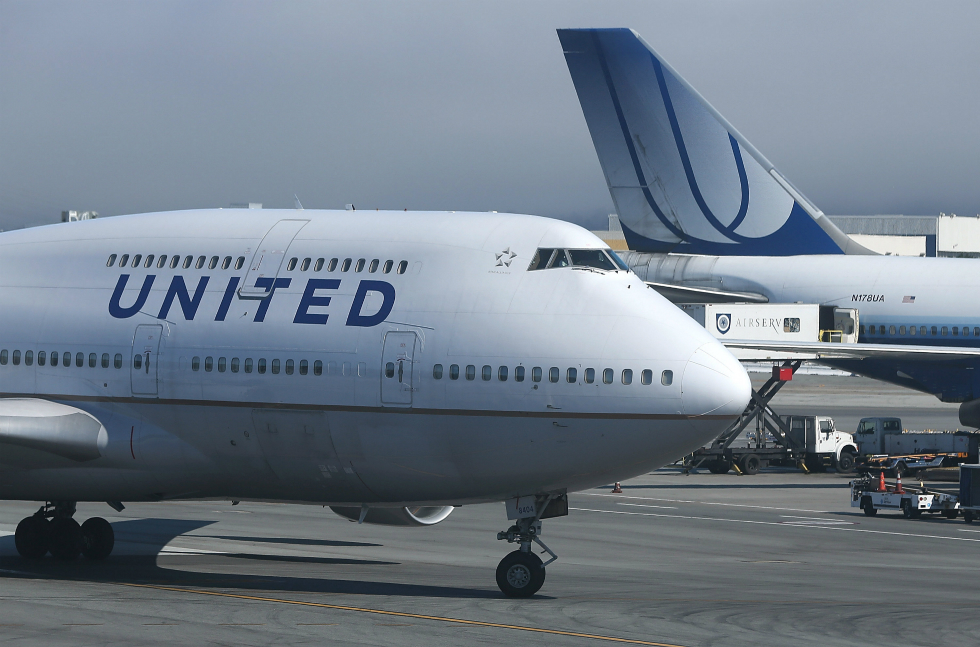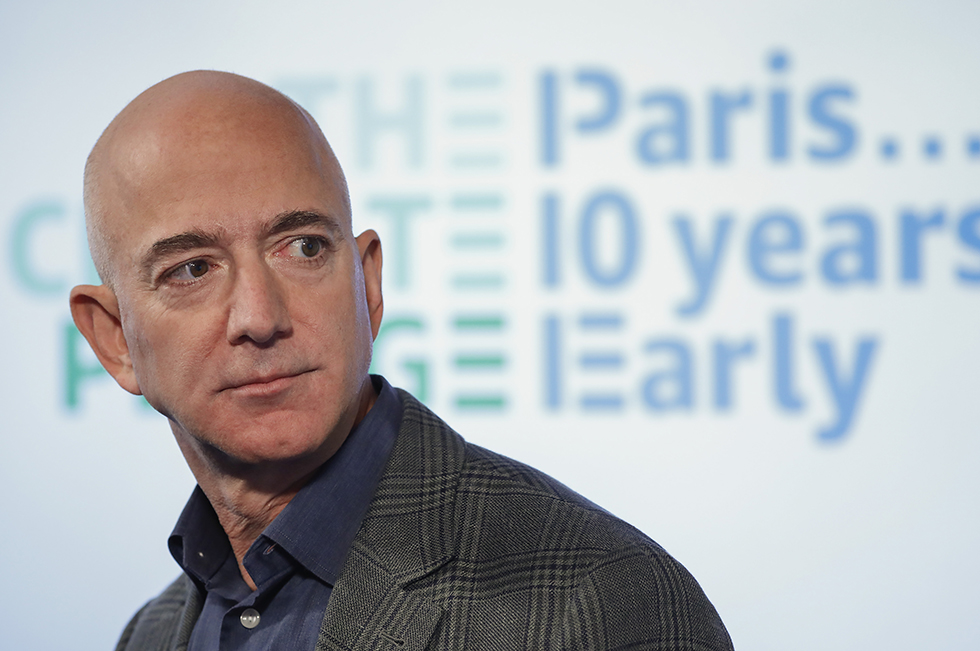Hillicon Valley — Presented by Cisco — App store market power bill clears committee

Today is Thursday. Welcome to Hillicon Valley, detailing all you need to know about tech and cyber news from Capitol Hill to Silicon Valley. Subscribe here: digital-stage.thehill.com/newsletter-signup.
Follow The Hill’s tech team, Chris Mills Rodrigo (@millsrodrigo) and Rebecca Klar (@rebeccaklar_), for more coverage.
Senators on the Judiciary Committee advanced another antitrust bill, the second so far this year, and this time it’s focused on market power concentration in app stores. It has strong backing from app developers, but tech giants and industry groups argue it could lead to secuirty issues.
Meanwhile, members of the House aviation subcommittee questioned federal agencies over the rocky 5G rollout.
Let’s jump into the news.
Senate advances bill targeting Apple, Google

A bill aimed at reining in Apple and Google’s app store market power advanced out of the Senate Judiciary Committee Thursday with support from all members of the panel except Sen. John Cornyn (R-Texas).
Cyber concerns: Other Republicans on the committee, as well as two California Democrats, expressed similar concerns as Cornyn regarding potential cybersecurity issues, though they voted to advance the bill, known as the Open App Marks Act, anyway.
It is the second major antitrust bill the committee has advanced so far this year, following the positive vote on the American Choice and Online Innovation Act last month. Although the Open App Marks Act advanced Thursday with even broader committee support, the ongoing concerns may pose hurdles for the bill if called for a full Senate floor vote.
Rein it in: Proponents of the bill, which is co-sponsored by a group of bipartisan senators, say it would provide guardrails for tech giants they argue are operating as gatekeepers and stifling competition through restrictive app store rules.
“It is important that our legislative agenda adapts with the times, and technology has outpaced legislation to such a grave extent that more burdensome measures are now necessary to rein in big tech. I’m not here to break up companies, but I am here to put executives and boards on notice. We’re not going to let you lobby your way out of this problem,” Sen. Marsha Blackburn (R-Tenn.) said.
The bill would restrict the owners of major app stores, like Apple and Google, from requiring users of their devices to use only their app marketplace, blocking the ability of developers to use alternative payment systems, and collecting commission fees up to 30 percent. Developers have criticized the practices and argued they are anticompetitive.
A MESSAGE FROM CISCO
How did privacy become mission critical for organizations across the world? Find out how organizations view privacy and privacy laws in Cisco’s 2022 Data Privacy Benchmark Study
Lawmakers blast agencies over 5G rollout

Lawmakers went after federal agencies on Thursday over the tumultuous rollout of 5G technology earlier this year, accusing officials of creating a crisis by failing to communicate over aviation safety concerns.
Members of the House aviation subcommittee questioned the head of the Federal Aviation Administration (FAA) along with airline and wireless executives about the lead-up to the 5G standoff, which resulted in delayed rollout of the technology in January.
Rep. Peter DeFazio (D-Ore.), chairman of the House Transportation and Infrastructure Committee, criticized the Federal Communications Commission (FCC) for approving the sale of C-band spectrum to telecoms last year without taking input from FAA officials who have been warning of potential disruptions as far back as 2015.
“It’s a pattern of ignoring consequences beyond the consequences to the profitability of the telecom industry, that’s their only focus,” DeFazio said of the FCC, whose chairwoman Jessica Rosenworcel was invited to the hearing but did not attend, citing a scheduling conflict.
“Having a dropped call is way less serious than having a dropped airline out of the sky,” DeFazio added.
Committee members and airline officials said the situation is still not resolved and urged regulators to develop a permanent solution that allows for 5G to be widely instituted without risking passenger safety.
TESLA RECALLS 800K VEHICLES
Tesla will recall more than 800,000 vehicles because of an issue with the seat belt reminder feature.
The National Highway Traffic Safety Administration (NHTSA) disclosed in a Thursday safety report that 817,143 Tesla vehicles would have to be recalled because the seat belt reminder may not activate when a new driver cycle begins, which could lead the driver to operating the vehicle without a seatbelt.
The recall includes the 2021-2022 Model S and Model X, the 2017-2022 Model 3 and the 2020-2022 Model Y. Tesla, however, is not aware of any injuries or deaths stemming to this issue as of Jan. 31, according to NHTSA.
“If the audible seat belt reminder chime does not activate at the start of a new drive cycle and the driver does not notice the accompanying visual seat belt telltale, the driver may not be reminded to buckle their seat belt and may begin operating the vehicle in an unbuckled state, which could increase the risk of injury,” NHTSA wrote in its report.
BITS AND PIECES
An op-ed to chew on: The ‘metaverse’: A chance for Biden to reset safety on the internet
Lighter click: Back in pre-Wordle times
Notable links from around the web:
People are selling themselves their own NFTs to drive up prices, report finds (NBC News / Kevin Collier)
Fitness influencers are using steroids in secret, trainers say (Insider / Lindsay Dodgson and Rachel Hosie)
Google Vanquished a Rival in Prague. Payback Could Hurt. (The New York Times / Adam Satariano)
Facebook’s dream of connecting the whole world is dead (The Washington Post / Will Oremus and Elizabeth Dwoskin)
A MESSAGE FROM CISCO
How did privacy become mission critical for organizations across the world? Find out how organizations view privacy and privacy laws in Cisco’s 2022 Data Privacy Benchmark Study
One last thing: Breaking the bridge for Bezos

A historic steel bridge in Rotterdam, the Netherlands, will be partly demolished so that Amazon founder Jeff Bezos can sail his new megayacht through the Maas River, also known as the Meuse River, Agence France-Presse reports.
The Koningshavenbrug, which locals call De Hef, was first built over the river in 1927 and has served a historic role, especially when it was damaged during the bombardment of Rotterdam in May 1940.
The bridge was previously dismantled in 2017 for renovations. The Rotterdam council pledged that year that the bridge would never be dismantled again, Dutch News reported, but Bezos’ new yacht appears to be an exception to that promise.
The new megayacht built for Bezos will be too tall to fit under the bridge when its three large masts are at full height. The boat is being constructed by the Oceano shipyard in Alblasserdam and is expected to be the largest sailing yacht in the world at 127 meters long.
That’s it for today, thanks for reading. Check out The Hill’s technology and cybersecurity pages for the latest news and coverage. We’ll see you tomorrow.
{mosads}
Copyright 2023 Nexstar Media Inc. All rights reserved. This material may not be published, broadcast, rewritten, or redistributed. Regular the hill posts







